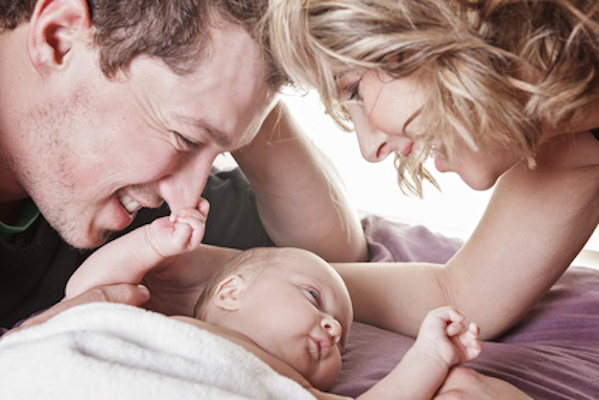Giving birth is a major life event. So is becoming a parent. This can come with hormonal changes and emotional ones too. Keep an eye out for any mood changes that last longer than expected. Moms (and dads) need support so that they can raise a healthy child.
Postpartum Depression Is Not Always About Mom
Dads are as prone to postpartum depression as moms.
Diagnosis Life summary:
Don’t blame it on hormones. New dads get postpartum depression just as often as moms. A study in JAMA Pediatrics (https://doi.org/10.1001/jamapediatrics.2018.1505) screened new parents for depression during 10,000 well-child visits for children up to 15 months of age. The prevalence of depression was similar regardless of the parent’s gender, 4.4% for dads and 5.0% for moms. We all know that parental depression could have long-term consequences for child development. Screening parents during pediatric visits may be an efficient way to make a diagnosis and offer help to the parents who need it.
Maternal depression during pregnancy can affect a child’s brain development.
Diagnosis Life summary:
A mom’s depression and anxiety can affect a child’s development even in the womb. A study in JAMA Pediatrics looked at more than 100 pairs of mothers and their newborns and found a correlation between clinical symptoms of depression and anxiety in the third trimester of pregnancy and structural changes in the child’s brain. MRI studies were completed at 1 month of age. Children of depressed or anxious mothers were more likely to have changes in the white matter of the brain. The researchers noted this could be linked to behavior problems later in childhood. This is yet another reason it is so important to screen for depression and reach out to people in need.
Postpartum depression can last years.
Postpartum depression is not only about the days and months right after delivery. Those depressive symptoms can last years, according to a study in Pediatrics (https://doi.org/10.1542/peds.2020-0857). The researchers tracked nearly 5,000 moms at 4, 12, 24, and 36 months postpartum. As many as one in four moms has symptoms of sadness, hopelessness, or anxiety at the 3-year mark. This is concerning because it not only affects the wellbeing of the mom but it could also impact on the child’s development.


Leave a Reply